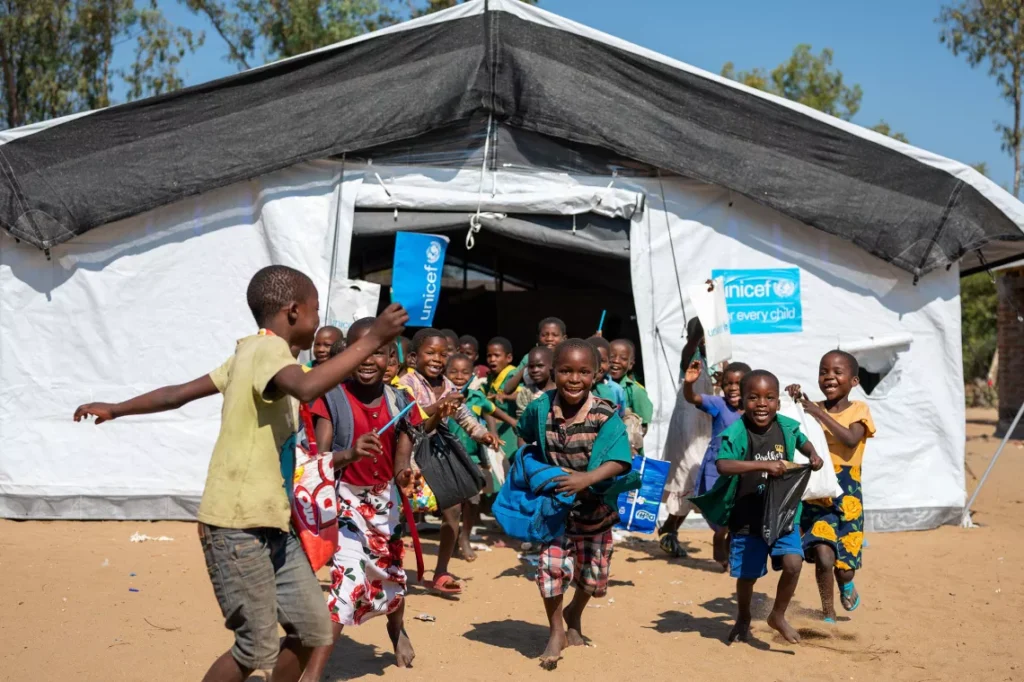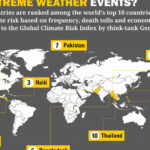
UNICEF launches appeal for USD 1.2 billion in flexible funding for children and communities in the region
At least 51 million children across Eastern and Southern Africa are at the epicenter of multiple crises, including relentless climate shocks, public health emergencies, conflict, and economic impacts. This is a sharp increase of 6 million children in need compared to the previous year, signaling a further deterioration of the humanitarian situation in the region.
To support its regional response, UNICEF is appealing for USD 1.2 billion in vital, flexible funding to prioritize the needs and rights of underserved children and communities in the region.
“Thanks to the unwavering commitment of donors and partners, alongside UNICEF’s strong presence in the region, we have been able to respond rapidly. This year alone in terms of nutrition efforts, over 135 million children and 22 million pregnant women were screened for severe wasting. However, several of our humanitarian programmes are critically under-funded, which jeopardizes our long-term efforts to support children in need,” said UNICEF Regional Director, Etleva Kadilli.
Over the past year:
- 20 of the 21 countries in the Eastern and Southern Africa region are currently facing public health emergencies, affecting more than 63 million people. These outbreaks include mpox, Marburg, cholera, malaria, and other vaccine-preventable diseases such as measles and polio. The growing frequency and rapid spread of public health emergencies, combined with fragile resilience and cross-border population movements, heighten the region’s vulnerability to infectious disease outbreaks.
- Displacement in Eastern and Southern Africa increased by almost 15% due to climate impacts such as floods and droughts as well as escalating conflicts in neighboring countries. From April 2023 to 10 October 2024, more than 826,000 people, including 415,000 children, crossed into South Sudan, fleeing war in Sudan. South Sudan now hosts more than 484,000 refugees, and an estimated 2 million people are internally displaced largely due to floods, intercommunal conflicts and food insecurity.
- As a result of multiple crises, children are increasingly vulnerable to violence, exploitation, and family separation. As seen in other emergencies, gender-based violence, worsened by food insecurity and lack of economic opportunities, is a growing threat, with girls at heightened risk of child marriage and other harmful practices due to desperate coping mechanisms. For example, during the drought of 2022 in Ethiopia, child marriages increased by almost 120% in the worst-affected regions compared to the previous year. In such crises both boys and girls are more vulnerable to multiple forms of violence such as harsh discipline, recruitment into armed groups, and hazardous forms of labour.
- Despite improved enrolment rates across the region, children’s access to education is similarly dire, with nearly 47 million children out of school. Children in this region are at the epicentre of the global learning crisis, and disproportionately affected by public health emergencies, conflict and climate-related disasters, with 9 out of 10 children unable to read a simple text by age 10.
- Amid declining food production and rising malnutrition, approximately 1 in 3 children in the region faces food poverty and 28 million are at risk of being trapped in a cycle of malnutrition and poverty.
To protect children and build community and systemic resilience amidst the shocks of multiple crises, UNICEF will continue to prioritize lifesaving efforts for the most vulnerable, as well as strengthen national capacity and preparedness for timely and efficient humanitarian responses to ensure children’s rights everywhere. UNICEF is also scaling up collaborations with partners to ensure the rights of children remain central in local and national responses.
“Eastern and Southern Africa is home to millions of children who face extraordinary challenges. Yet even in the face of adversity, we see remarkable dynamism, hope and resilience. By prioritizing action and investment, we can make a transformative change, ensuring that children have the opportunities they need to make a difference in their lives,” added Kadilli.




